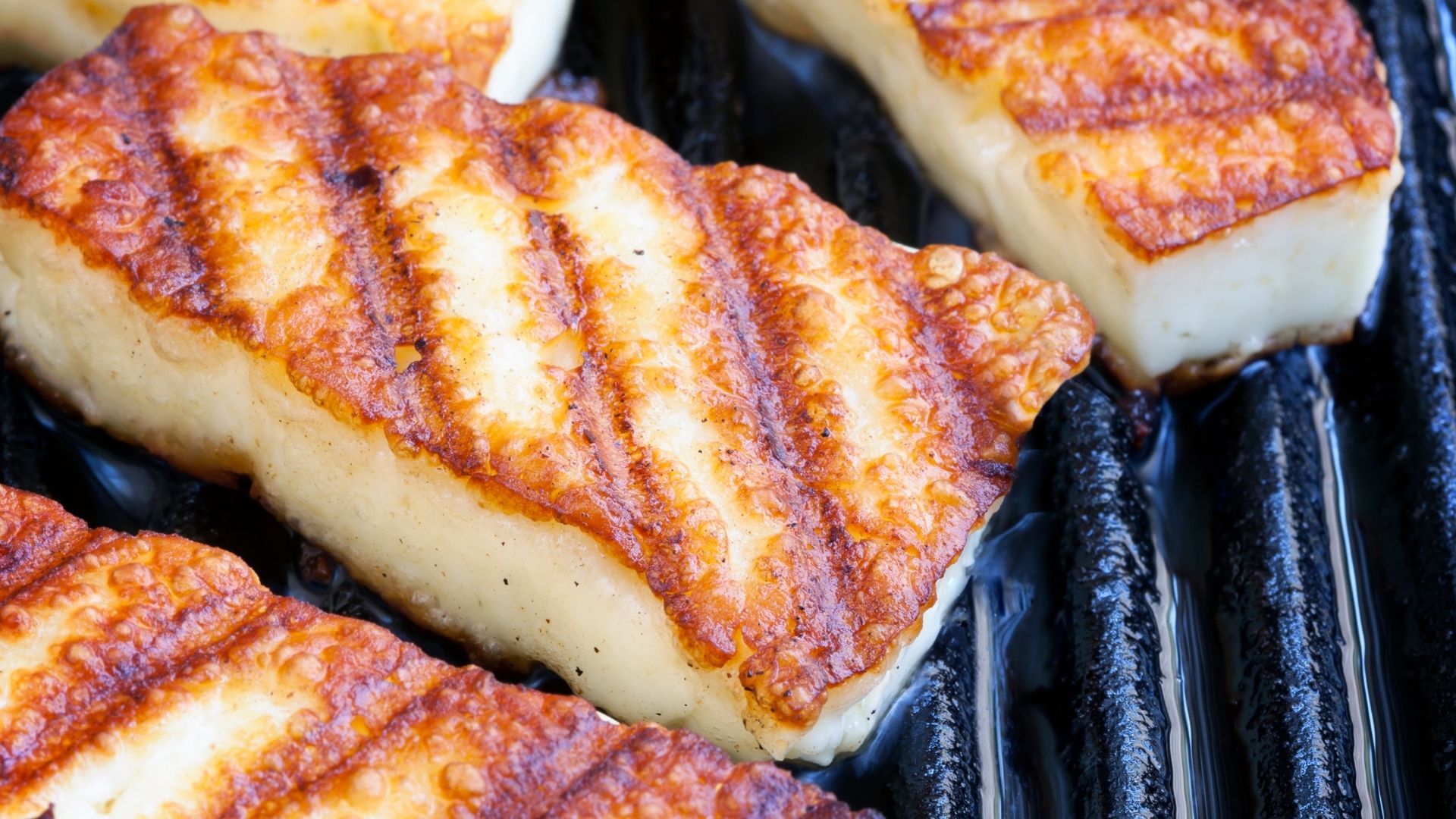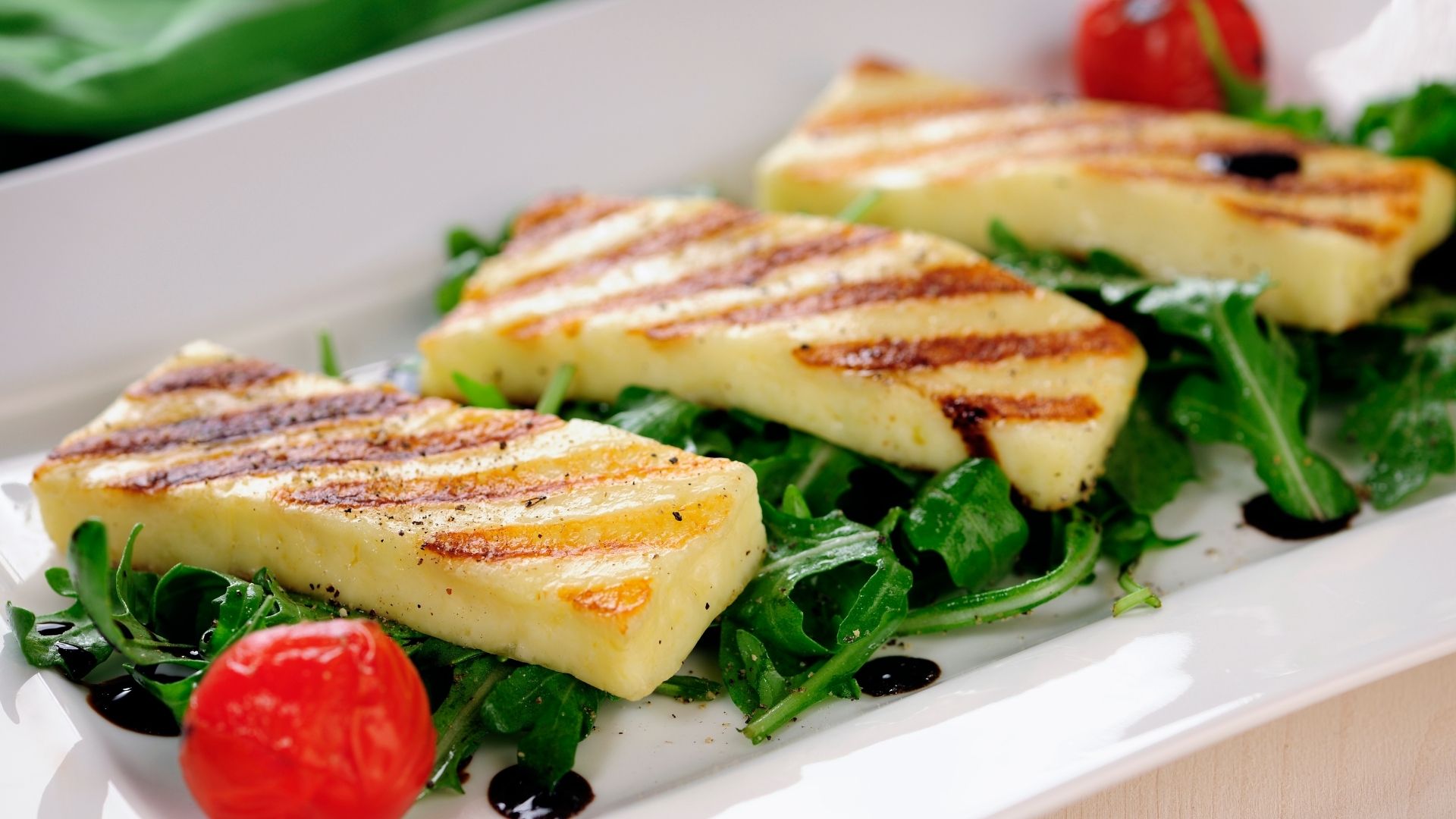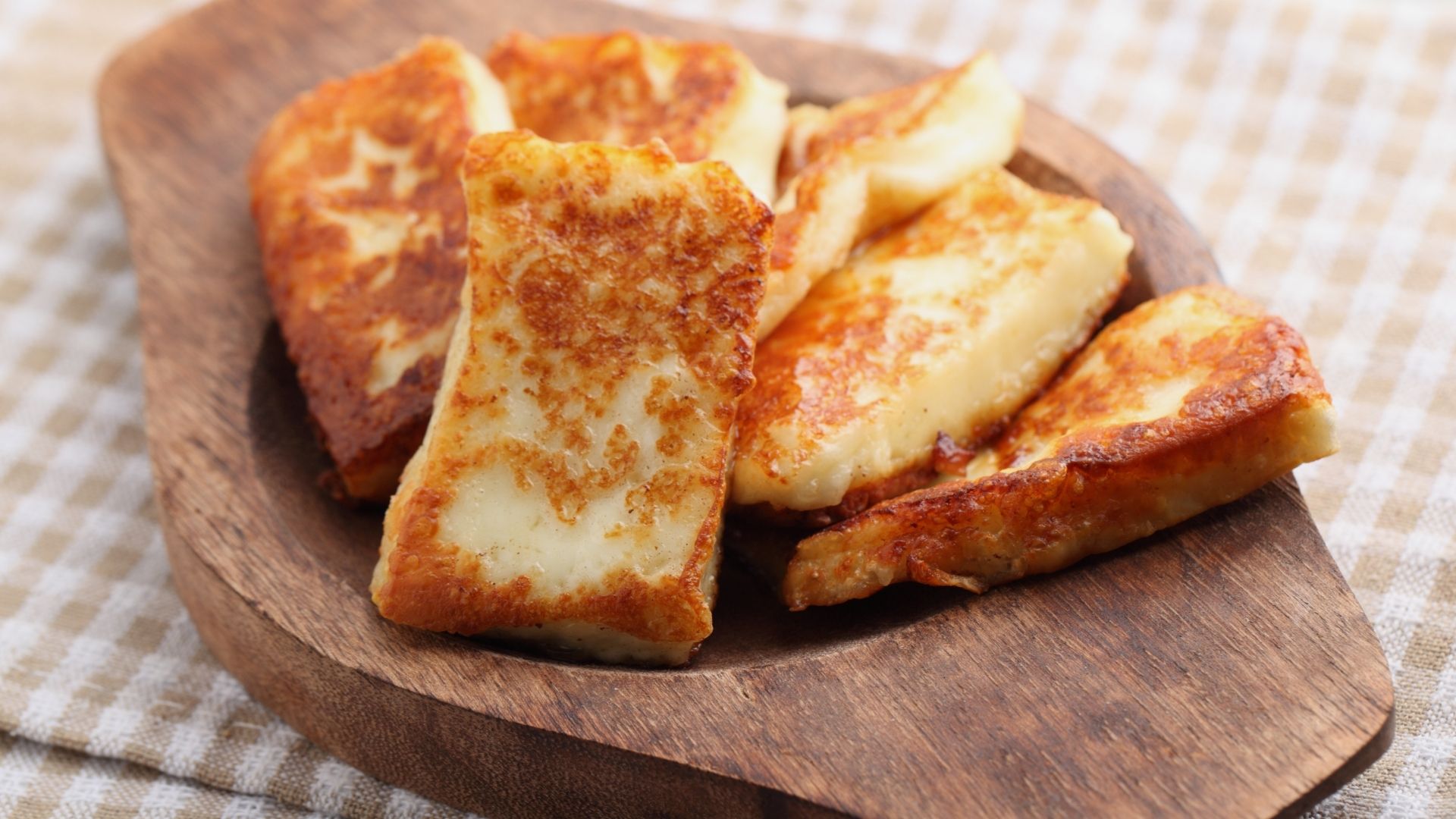Straight from the barbecue or the frying pan, it’s not just vegetarians who love halloumi.
An easy-to-barbecue cheese which won’t run or even drip onto the hot coals? The cheese of your dreams? Well, with halloumi this a reality as this popular barbecue cheese retains its shape even when exposed to heat. Its unmistakable flavour, unique consistency and range of different preparation options mean it not only has vegetarians licking their lips. Find out more about this squeaky cheese and how it can add something special to many a mealtime.
However trendy it might be, halloumi is not a new invention. Even around 2000 years ago this tasty cheese was already an established part of the menu in the Mediterranean region. Halloumi originally comes from Cyprus. These days, the cheese speciality is a national dish. It’s produced using either sheep’s, goat’s or cow’s milk or a mixture of the three. What’s different about halloumi and other heat-resistant barbecue cheese varieties is that lactic acid bacteria which convert the lactose into lactic acid are not used in the production. Cooking the cheese mixture during production also ensures that the pH value does not drop too far into the acidic range. This means halloumi has a pH value which is above the range needed for cheese varieties which melt.
Halloumi’s journey into our cuisine and our fridge
So, it’s barbecue time again or you’d just like to give halloumi a try? Luckily for you, this cheese speciality is available in most supermarkets. Halloumi is vacuum packed, stored in brine, and can be found in the refrigerator aisles. The cheese is traditionally seasoned using mint by initially wrapping the cheese in mint and then folding and pressing it. This method was previously used to extend the shelf life thanks to the essential oils from the mint infusing in the cheese. Today, this method is no longer needed for extending the shelf life due to the vacuum packing and the preserving brine.
An unopened pack of halloumi will stay fresh for several months in the fridge. Once opened, the shelf life reduces significantly. The best place to then store the cheese is in your Liebherr BioFresh Meat & Dairy safe where it will even keep for up to 40 days. However, opened halloumi will still keep for up to 10 days in the normal fridge compartment. The freezer, however, is not a suitable place for the barbecue cheese. Generally speaking it is best to enjoy halloumi when it is as fresh as possible because even the slightest contamination may significantly shorten the shelf life.

Off to the barbecue
The most common way to use halloumi is to cook it on the barbecue or in the frying pan. To do this, start by cutting it into slices approximately one centimetre thick. Because the cheese won’t melt, it doesn’t need to be wrapped in tin foil. This should also be avoided because, like acidic foods, barbecue food containing salt can also dissolve aluminium. Both due to potential health risks and for the sake of the environment, it makes sense in this case to do without this. You can find out more useful information on using aluminium in connection with food here.
While a barbecue tray is also not essential, it does protect the cheese from burning and prevents it from becoming too dark. You could use an enamel tray, which contains no aluminium. Just like barbecue cheese, vegetables also tend to burn quickly and a barbecue tray is therefore also good for these. Halloumi tastes best with a light brown crispy crust. For this, turn it once so that it browns on both sides. On the inside it is still nicely tender and typically squeaks when you chew it due to its consistency.
Halloumi also tastes great raw, straight from the packet. Marinades are also great for a bit of a change. They add additional flavours and juices to the barbecue cheese. Certain ingredients go particularly well with this cheese speciality. Even just some olive oil with salt, pepper and garlic will produce an irresistible taste experience. Lemon juice, cayenne pepper, grated lemon zest, fresh thyme and coriander or a little chilli pepper can be added to taste to supplement the delicate coating of seasoning. The cheese should be marinated before barbecuing or frying for at least half an hour and ideally for one to two hours in order for the marinade to take its full effect.
But what if you have no time for marinating and you find raw halloumi a bit uninspiring? This is not a problem because fortunately barbecue cheese also goes well with the other regular seasoning and condiments. You could either sprinkle on your favourite seasoning afterwards or give the various barbecue sauces or herb dips a try. You’ll eventually work out what you like most with halloumi. However, take care when adding more salt, and this also applies to the marinade. The cheese may already be very salty anyway due to the brine. In this case you could just end up ruining it.
Clever combinations
The wide range of possible combinations also make halloumi perfect for an evening’s barbecuing and buffet. The barbecue cheese goes really well for example with meat. In Cyprus they like to combine it with smoked pork loin – known as “Lounza”. However, even without any meat at all, it can really add the finishing touches to any buffet. It is particularly delicious combined with various types of vegetables and salads. Since aubergines, courgettes, peppers and mushrooms are also good for barbecuing, vegetable-halloumi skewers can also be a nice thing to prepare. Another really tempting idea for using halloumi is the vegetarian halloumi burger. In this case, the cheese replaces the mincemeat patty while the barbecue vegetable strips add a wholesome freshness and really enhance the burger in terms of flavour and nutrients. Absolutely delicious!
However, halloumi isn’t just a great addition to savoury dishes. Sweet fruits also go really well with the salty barbecue cheese. For example, how about halloumi with raw or barbecued watermelon? Watermelon goes together perfectly with halloumi, just as it does with feta cheese. Halloumi combined with mango is equally delicious. The yellow fruit also works really well on a fruity mango-halloumi skewer. When barbecued, this sweet and salty treat is simply perfect.

#liebherr, #halloumi, #barbecue_cheese, #barbecuing, #frying, #Cyprus, #Mediterranean, #vegetarian, #cheese, #skewers, #marinades

